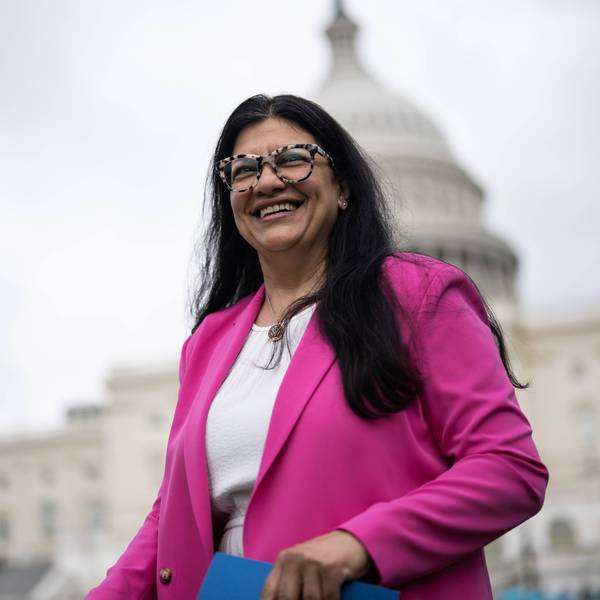The voters of New Jersey just elected a former Wall Street banker as their new governor. Just what America needs, right? Many onlookers are undoubtedly thinking that the last thing our country needs at this troubled time another well-heeled Wall Streeter in a powerful political position.
In the nation's capital, the Trump administration is already -- and famously -- teeming with Wall Street alumni.
At one point this past spring, Team Trump boasted six former top guns from just one Wall Street bank alone. The White House, quipped senator Elizabeth Warren from Massachusetts, had enough Goldman Sachs alums to open a branch office.
Murphy's Way
Phil Murphy, New Jersey's governor-elect, also happens to hail from Goldman Sachs. But Murphy bears no public policy likeness to his fellow Goldman alums in the Trump administration. In fact, over the course of his more than 500-day gubernatorial campaign, Murphy took every opportunity to distance himself from the rich people-friendly agenda the White House's Goldman crew is relentlessly promoting.
Trump's Goldman alums, for instance, are pushing tax cuts for the rich. Murphy campaigned for a new "millionaire's tax," a hike in the state's tax rate on income over $1 million, from 8.97 percent to 10.75 percent.
Trump's Goldman Sachs crew is killing regulations that protect working people. Murphy's campaign called for a $15 minimum wage, free community college tuition, and guaranteed sick leave statewide.
Murphy the former Wall Street banker has even backed the idea of creating a public state bank for New Jersey, an institution that would take in deposits from the state government and lend out dollars to finance local infrastructure projects, small businesses, and student loans.
"I'm in love with the idea of a public bank," Murphy told voters during his campaign, in an obvious appeal to supporters of Vermont senator Bernie Sanders, until now the nation's most visible political advocate for public banking.
The Goldman Way of Winning
Will New Jerseyans end up seeing a public state bank, a millionaire's tax, and a $15 minimum during Murphy's upcoming four-year term? New Jersey's recent history, unfortunately, is giving many progressives pause.
Murphy actually ranks as New Jersey's second former Goldman Sachs exec to enter the state's gubernatorial mansion. The first, Jon Corzine, won election in 2005 and then, after a disastrous four years, lost his re-election bid to right-wing blowhard Chris Christie.
Corzine, a mega-millionaire, spent a huge chunk of his millions to become governor. Murphy has spent millions, too. In the gubernatorial primary race, he outspent his rivals five to one and won the overwhelming support of local political leaders, one press report notes, with "large checks written to county Democratic committees. Murphy, also like Corzine, has never paid any "political dues," working his way up party ranks. His millions gave him instant political credibility.
A Political Neophyte
Yet Murphy, for all his millions, remains a political neophyte, who like all neophytes, may make missteps.
As President Obama's ambassador to Germany, Murphy generated a dicey diplomatic embarrassment when his unflattering comments about German chancellor Angela Merkel went public and then viral.
A similar misstep could easily tank Murphy's efforts on behalf of the progressive political platform he ran on to become New Jersey's next governor.
Murphy may prove to be an excellent governor, who moves New Jersey toward significantly greater equality. Or he may come be seen as a blundering know-it-all, whose incompetence discredits the progressive positions he now champions.
Murphy's tenure as governor of New Jersey, in other words, will be a crapshoot.
A Deeply Unequal America
In a deeply unequal America, where wealth and privilege are concentrated outrageously at the top of society and money defines access to political power, we see these sorts of crapshoots all the time.
We make the best choices we can, and vote for the mega-millionaires who say the right things, rather than the less savory ultra-rich on the other side. We hope against hope these gilded heroes will make the right things happen.
But voters shouldn't have to gamble like this. We need a more equal America, with equal access for all. We need a mass movement that fights for this dream.




